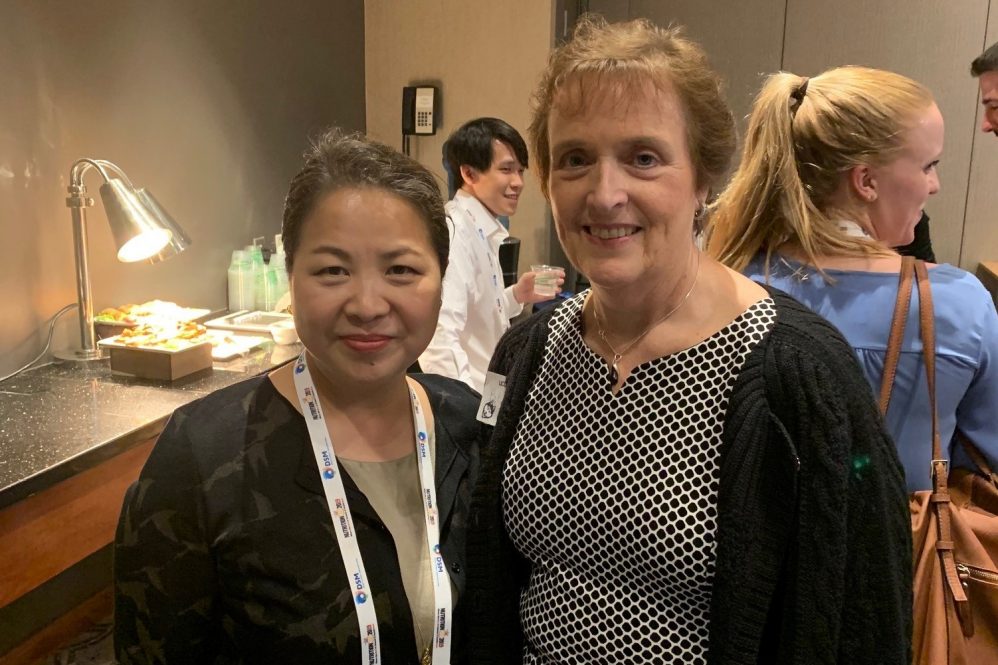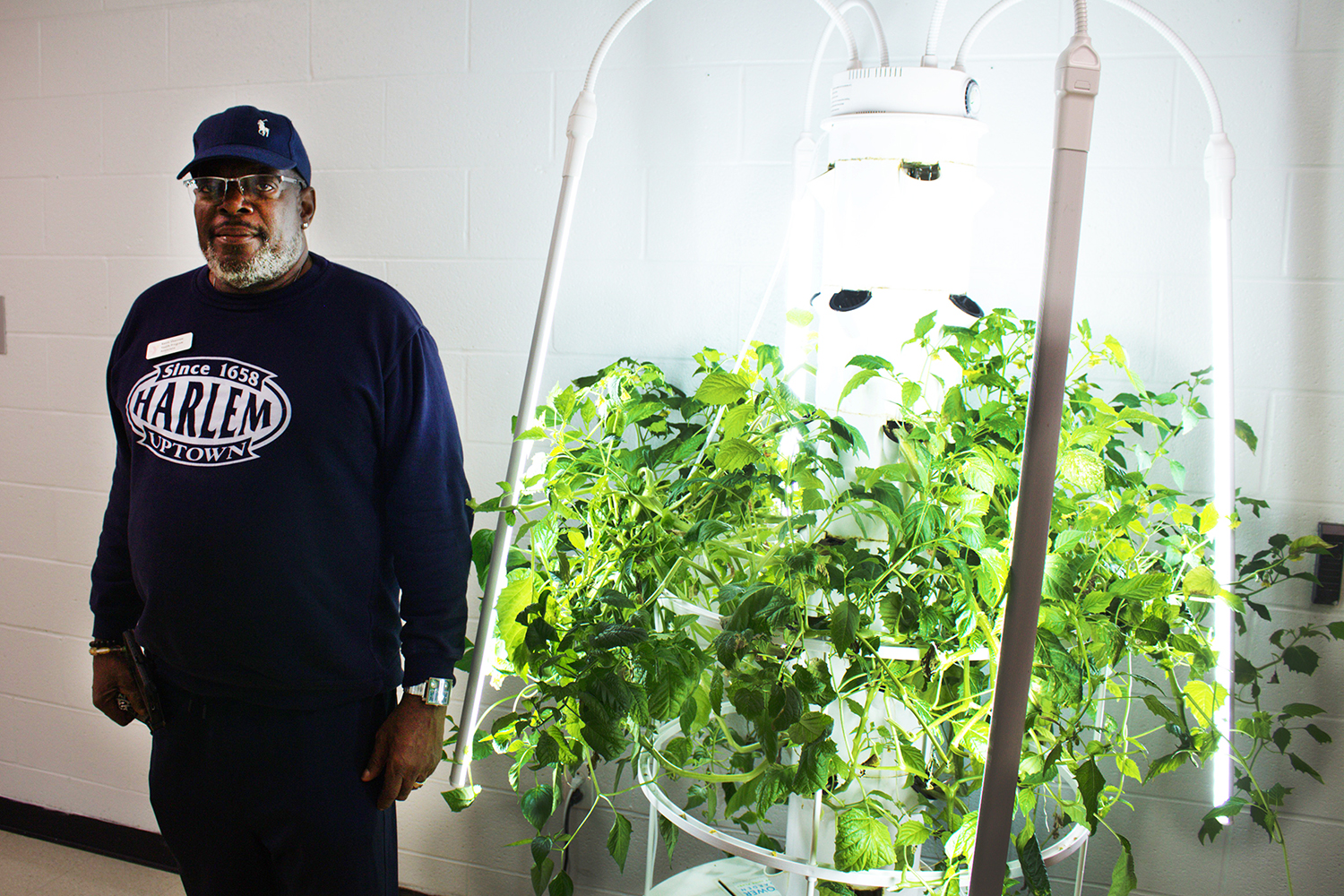Patricia Anthony, a 1980 graduate from the College of Agriculture, Health and Natural Resources (CAHNR), has spent her distinguished career improving nutritional care for patients and advocating for better nutrition products and nutrition education for healthcare professionals in the US and abroad. The College honored Anthony this year with the CAHNR Distinguished Alumni Award, a prestigious recognition for alums with a track record of success and commitment to their alma mater.
After graduating from UConn’s Department of Nutritional Sciences, Anthony earned her master’s degree in clinical nutrition at the University of Kentucky in 1982. She started her career as a dietitian at The Johns Hopkins Hospital and later worked in home care managing patients on intravenous nutrition or tube feedings.
“It is rewarding to see someone who has had a long ICU stay and are able to come home on parenteral nutrition,” Anthony says. “Often, they can return to a good quality of life and live for many years, which is a testament to improving medical knowledge and technology.”
To me, it’s very important that students get practical experience. I want dietitians to understand what opportunities are out there. — Pat Anthony
These experiences helped prepare Anthony to move into the private sector working with product manufacturers to link science with the all-important clinical practice side of nutrition.
“How do you expect companies to develop products that our patients need if you don’t have clinicians who have worked with patients and understand the challenges of providing optimal care?” Anthony says.
Growing up overseas – in Turkey for two years and the Netherlands for eight – Anthony always felt a strong desire to work abroad. In 2000, she got that chance. Anthony moved to Switzerland for a position at Nestlé Nutrition.
She then spent 12 years in Switzerland as part of a team developing nutrition products, both oral supplements and tube feeding. Anthony helped educate the sales and marketing team on the science behind these products, and the clinicians in the countries where the products were sold. She worked with key opinion leaders across the world to further advance the science and support product use in clinical practice.
During her time with Nestlé Nutrition, Anthony worked to increase the awareness and use of the Mini Nutrition Assessment (MNA®) tool. The MNA was developed to help clinicians identify individuals 65 and older at risk of malnutrition. Anthony worked to shorten and validate the tool (MNA-SF), to increase its use by clinicians. She also helped develop a simplified tool that patients themselves could fill out. She also worked to develop an app for the MNA tool. The MNA has been translated into over 35 languages.
“I love the international collaboration,” Anthony says. “When I was with Nestlé Nutrition, I had an impact on educating people around the world and making nutrition a topic that was important to them. I love teaching and seeing how they interpret what you have taught and implement it. I learned as much from them as I taught and made many life-long friendships.”
Upon returning to the US, Anthony worked with a pharmaceutical company helping to bring intravenous lipids stateside, which required FDA approval. She now works with the nonprofit ASPEN (American Society for Parenteral and Enteral Nutrition), which is an interdisciplinary medical professional organization focused on improving nutritional care of patients. With her background in industry, Anthony is well suited for her role in managing relationships with ASPEN’s corporate partners, which include nutrition and pharmaceutical companies. These companies come to ASPEN for educational programming to support the proper use of their products in patient care. Anthony also heads ASPEN’s collaboration with international sister organizations in Europe and South America.
Improving the Future of the Field
Throughout her career, Anthony has advocated for the importance of making nutritional care a regular part of medical therapy from primary to intensive care.
“Today, the issue of nutrition in disease management remains to be a neglected area of care,” Anthony says. “There are so many patients who go into the hospital and come out more malnourished.”
Most doctors, nurses, and pharmacists who deal directly with patients receive little to no nutrition training during their formal education, leaving them ill-equipped to address patients’ nutritional needs.
“We know it makes a difference,” Anthony says. “The frustrating part is that it’s not used enough.”
Since coming back to the US, Anthony has engaged with UConn, supporting current students on their path outside the university.
“To me, it’s very important that students get practical experience,” Anthony says. “I want dietitians to understand what opportunities are out there.”
Anthony has helped develop an internship for UConn nutritional science students at ASPEN. The internship provides students with hands-on experience in the organization, specifically working on the annual Malnutrition Awareness Week program, while providing ASPEN with insight into how the younger generation uses social media, their preferred learning platforms and providing ideas as to how ASPEN might engage with medical, pharmacy, and nursing curricula.
“We are so grateful for Pat’s continued support and involvement with our program,” says Ji-Young Lee, head of the Department of Nutritional Sciences. “Our students have gained valuable experience that shows them potential paths for their future careers.”
Anthony also hopes to help UConn students connect to the kind of international experiences she found so rewarding.
“We live in a very big world, and we have a great deal to learn from many different people across all walks of life,” Anthony says. “The US has much to be proud of. But we need to understand that there are many ways to address a challenge, and our way may not be the only way or the best. We have so much to share and so much to learn from each other.”



